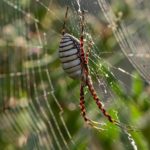Your Eyes On Sharks
A terrifying number of up to 73 million sharks are killed every year – for a bowl of shark fin soup*. What’s more disturbing is that the Arabian Gulf, hosts the fourth largest exporter of shark fins in the world to Hong Kong – the United Arab Emirates (UAE)*. Sharks in the Gulf are rapidly disappearing from their rightful home, which is in general met by a deafening silence from the general public despite the substantial increase in the number of recreational divers over the last 3-5 years within the region – thanks for it being labeled as something “cool” to do and photos taken underwater of onself diving is deemed as “awesome to showcase on social media”.
Unfortunately the reality is illiteracy still remains highly concerning as to the issues being faced in these waters with the exception of litter and pollution – which still is a big problem. Countries like Bahrain for example, are yet to have an official environmental curriculum to be added in schools by the Ministry of Education. In addition, no university in Bahrain offers an undergraduate degree in any environmental sciences, conservation, marine biology or related fields. The question that begs to be asked is, how can we educate and involve youth and members of the public in conserving such important species that are threatened by extinction due to human impacts?
Thankfully, awesome people who care about those forgotten by others are still out there. The Gulf Elasmo Project is a non-profit initiative aimed at gaining a better understanding of elasmobranch species, abundance and distribution in the Arabian region. It was started by Rima Jabado as the first attempt to assess the status of sharks in the UAE. Results have clearly indicated that many species were heavily exploited, especially noting that, elasmobranchs in the UAE were being targeted not only for local consumption but also for the trade in shark products (especially fins and meat). Moreover, the elasmobranch fishing industry like most is highly unsustainable.
In 2012, the UK Shark Conservation Society visited Bahrain and underwent a shark survey to assess the health of elasmobranches in collaboration with the Public Commission for Marine Resources, Environment & Wildlife. The results were unsurprisingly heartbreaking; shark populations in Bahrain are nearly depleted.
Even though a total number of 16 species of sharks were recorded during the survey, there was an almost total absence of caught mature elasmos (both at sea and in the fish markets) from the larger shark species such as Great Hammerheads, Tiger sharks, Bull sharks, and Blacktips indicating that their place is being taken over by smaller predator fish who are more tolerant in the face of fishing pressures**.
While there are some regulations and management measures across the region to protect certain species, data on most elasmobranchs remains sparse and there is still a lack of understanding of the conservation status of these species. The Arabian Gulf remains to be understudied with very little research being undertaken on the status of the various elasmobranch populations. It is likely that without accurate and scientifically based information to support conservation measures, governments in the region will not prioritise elasmobranch protection.
This is why YOU are needed for sighting reports utilising citizen science which plays a crucial role in monitoring shark elasmo populations in your country (within the Arabian Gulf) by helping evaluate species diversity, abundance and habitat range. You can now help support conservation efforts through the “Your Eyes on Elasmos” citizen science program which enables you to report your encounters with these breath-taking species whether underwater, at landing sites or even at a fish / super market. The program originally running in the UAE is expanding and has now been launched in Bahrain marking the country’s second citizen science program through bnature – Bahrain’s first online environmental platform.
Click here to learn more about the Gulf Elasmo Project and how to send your data:
To download the “Sharks of the Arabian Seas: An Identification Guide” for FREE which will help you identify your sharks click here.
To watch the online documentary of sharks in Bahrain click here.
*Information taken from the Gulf Elasmo Project Website & Video
**Information taken from the UK Shark’s Conservation Society Website
 Previous Post
Previous Post Next Post
Next Post